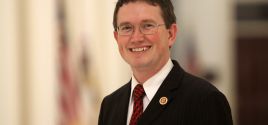'Tent Cities' Spring Up In The USSky NewsSep. 21, 2008 |
Popular 
Rep. Thomas Massie Warns Congress is Trying to Pass Hate Speech Laws to Outlaw Criticism of Israel

ADL Urged Congress to Pass FISA Law Spying on Americans to 'Protect Israel'

'Sniper Seen on Roof Overlooking Pro-Palestine Protest' at Indiana University

Claim Jewish Student Was 'Stabbed In The Eye' by Pro-Palestine Protester Draws Mockery After Video Released

Axios Poll: Majority of Americans Now Want Mass Deportations
 Communities of homeless people living in tents are cropping up across the US as the effects of rising unemployment, repossessions and the credit crunch bite. From Seattle to Athens, Georgia, homeless advocacy groups and city agencies are reporting the most visible rise in homeless encampments in a generation. Nearly 61% of state-run organisations in the sector have seen a rise in homelessness since the economic downturn first started in 2007, a report says. The study, by the National Coalition for the Homeless (NCH), says the problem has worsened since the report's release in April, with repossessions mounting, fuel and food prices rising and the job market tightening. One of the so-called "tent cities" is based by the side of the railway tracks in the city of Reno, populated by people who lost their jobs to the ailing US economy, or newcomers who had moved there for work and discovered no-one was hiring. Out of a dozen people interviewed in the tent city, six had come to Reno from California or elsewhere over the last year, hoping for casino jobs. "I figured this would be a great place for a job," said Max Perez, a 19-year-old from Iowa. He could not find one and ended up taking showers at the men's shelter and sleeping in a tent barely big enough to cover his body. The relatively posh California city of Santa Barbara has given over a car park to people who sleep in cars and vans. The city of Fresno, California, is trying to manage several growing tent cities, including an encampment where people have made shelters out of scrap wood. In Portland, Oregon, and Seattle, homeless groups have paired with non-profit or faith-based groups to manage tent cities as outdoor shelters. Other cities where tent cities have either appeared or expanded include Chattanooga, Tennessee, San Diego, and Columbus, Ohio. "It's clear that poverty and homelessness have increased," said NCH acting executive director Michael Stoops. "The economy is in chaos, we're in an unofficial recession and Americans are worried, from the homeless to the middle class, about their future." |



